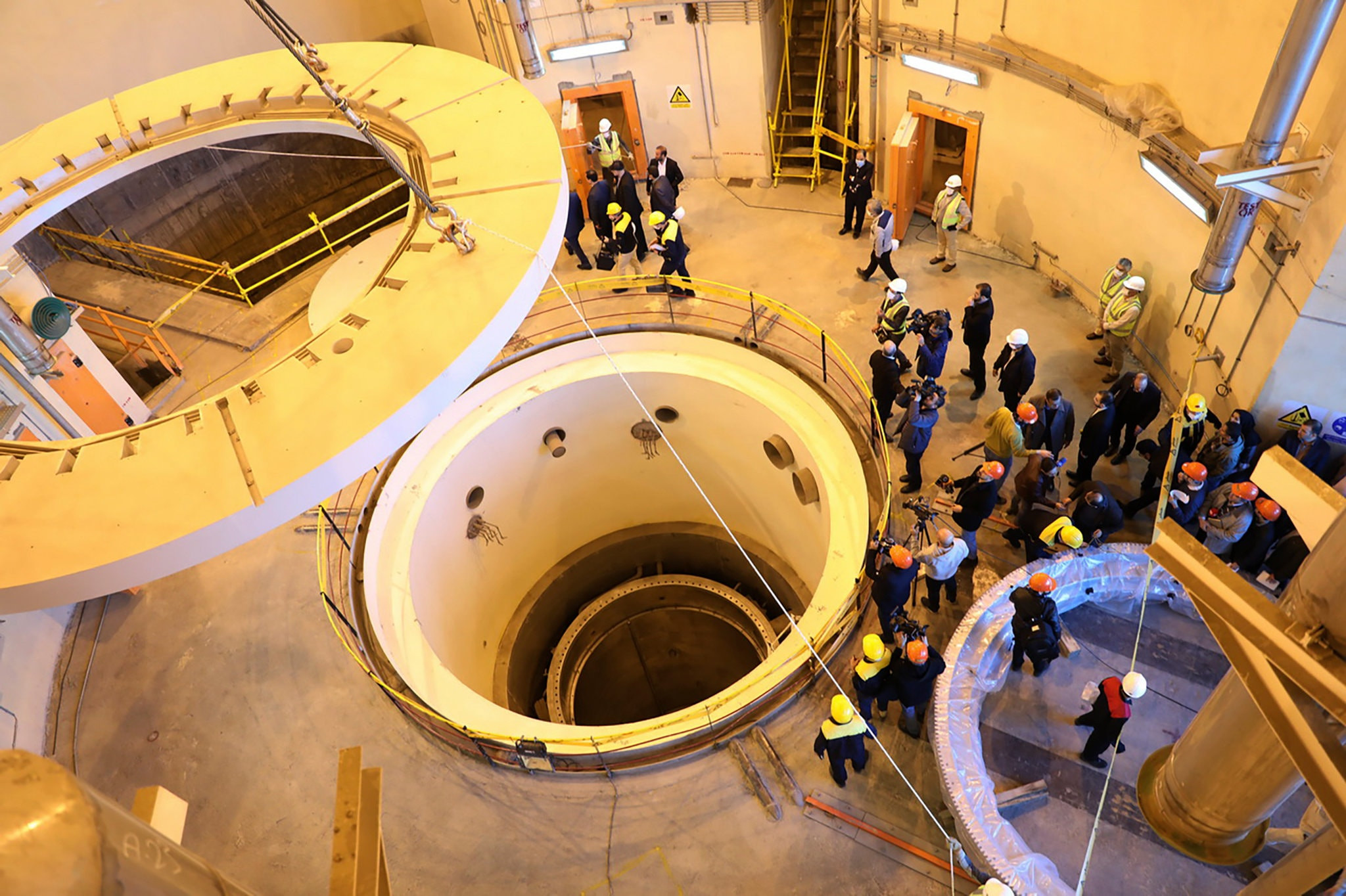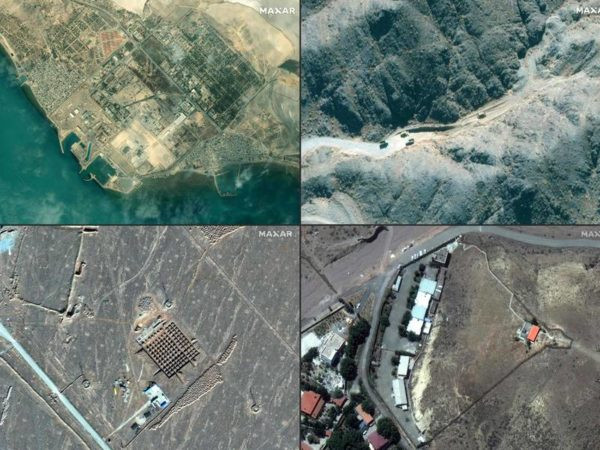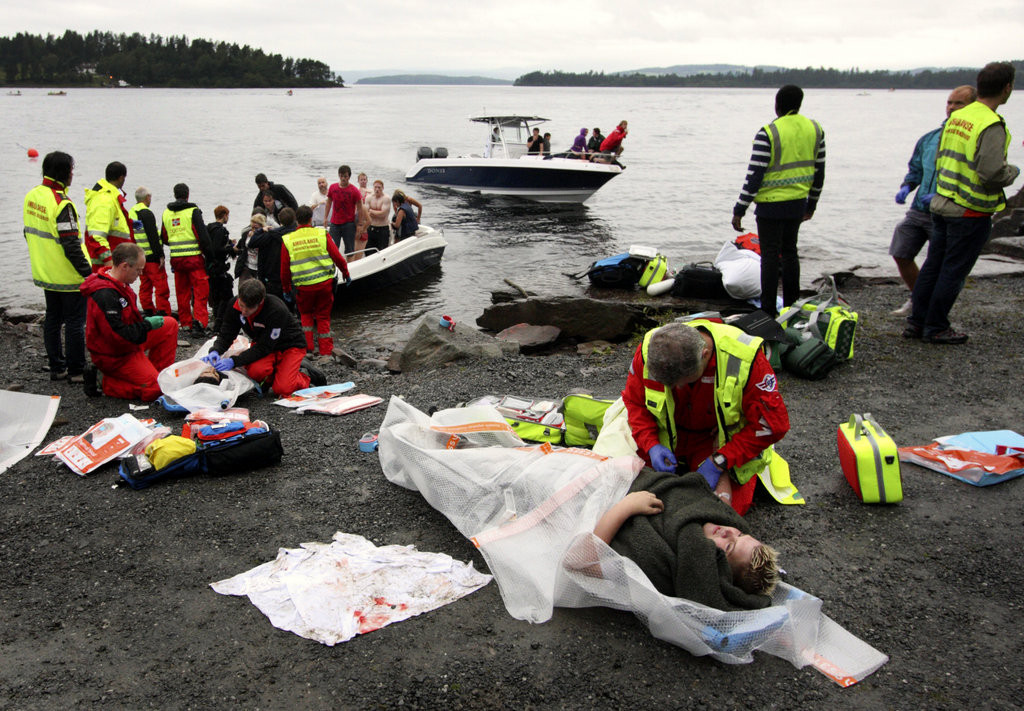As Israel ponders its response to Iran's recent missile barrage, speculation is rife that a strike on Iran's nuclear facilities could be on the table. However, such an audacious move comes with its own set of daunting complexities. Experts contend that the operation might demand direct US support to be successful.
President Joe Biden has publicly voiced his opposition to Israel targeting Iran's nuclear program. When asked by a reporter on Wednesday if he supported such an action, Biden responded emphatically, "The answer is no." However, despite Biden's stance, some experts believe the US could still choose to lend its support if Israel decides to pursue this path.
The US is keenly aware of the delicate balance at play and is working tirelessly to prevent the situation from spiraling into a full-blown war. "Our dominant message is, ‘let’s take great care in whatever we do with respect to Iran,’" remarked Deputy Secretary of State Kurt Campbell. However, the reality is that the situation is tense and the region hangs on a knife's edge. The US is in constant contact with its Israeli counterparts, engaging in discussions that span 12 hours daily. They are acutely aware of the gravity of the situation and the potential for a regional conflagration.
The potential for a wider conflict between Israel and Iran has been a persistent concern for some time. Both nations are regional powerhouses with a long history of animosity. While Iran may have a larger population and a more robust army on paper, experts point to Israel's superior military technology and its strategic alliances as significant advantages. They argue that, in a head-to-head conflict, Israel possesses a powerful arsenal that would be hard to match.
"Israel certainly has more sophisticated military technology than Iran. They have the latest aircraft, armed with modern missiles and bombs," explained Shaan Shaikh, a deputy director fellow at the Missile Defense Project at the Center for Strategic and International Studies (CSIS). He went on to say, "Their air defenses are clearly effective. But perhaps most importantly, Israel also has powerful partners, namely the United States, but also those in Europe and the Middle East." The balance of power in the region is far more nuanced than a simple comparison of troop numbers or military equipment.
While Israel may be able to inflict considerable damage on Iran's nuclear program without US assistance, experts suggest that achieving a truly decisive strike that would permanently set back Iran's nuclear ambitions might require US involvement. "Israel can damage Iran's nuclear program without US assistance, but it is unclear if it can by itself carry out the type of sustained and penetrating conventional attack that would seriously set back the program," said Farzan Sabet, a senior research associate at the Geneva Graduate Institute.
Iran's nuclear facilities are not easily accessible targets. They are strategically scattered across various locations, with some of the most sensitive ones nestled within heavily fortified underground bunkers. The key underground facilities at Fordow and Natanz, for instance, would require the use of massive US bunker-busting GBU-57A/B Massive Ordnance Penetrators, according to experts at the Bulletin of the Atomic Scientists.
Even if Israel were to launch a successful strike on Iran's nuclear program, it would have to contend with the potential consequences. Iran's nuclear program, while officially stated to be peaceful, has been the subject of international scrutiny and sanctions due to concerns over its potential for weapons development. An attack on Iran's nuclear facilities could prompt the country to accelerate its efforts to build a nuclear weapon, escalating the geopolitical tensions in the region.
The potential for a devastating conflict between Israel and Iran raises serious concerns. The US is working diligently to de-escalate the situation, but the outcome remains uncertain. The next few weeks will be critical, and the world watches with bated breath.
Examining the Potential Impact of Israel's Retaliation
The Geographic and Logistical Challenges
The vast distance between Israel and Iran's main nuclear bases, spanning over 1,000 miles, presents a significant logistical challenge. A successful strike would require a massive military operation involving a substantial number of aircraft, potentially reaching close to 100, according to a 2012 report by the US Congressional Research Service.
Iran's Air Defense Systems: A Daunting Obstacle
Furthermore, Iran boasts a network of sophisticated air defense systems that would need to be neutralized to enable a successful strike. These systems include Russian S-300 surface-to-air missile systems, possibly even an S-400 system, as well as domestically developed systems. While they might not be as advanced as Israel's defenses, they still pose a significant threat.
Beyond Nuclear: Other Targets and Potential Strategies
Experts suggest that a more limited attack on Iranian infrastructure and logistics, rather than a direct assault on nuclear facilities, might be a more viable option. This could involve targeting military bases, secondary nuclear facilities, or even economic targets. "The Israelis are more likely to attack logistics lines to the Iranian nuclear program, which can be achieved in the same hour-by-hour timeframe as their military activities are currently governed by," stated Robert Dover, a professor of international security at the University of Hull.
Balancing Deterrence and Escalation: Navigating the Tightrope
As the situation unfolds, the world remains on edge, acutely aware of the potential for a catastrophic regional conflict. The current standoff serves as a stark reminder of the delicate balance that exists between the power of deterrence and the potential for destabilizing escalation, particularly in a region where nuclear capabilities are a reality, even if not openly acknowledged by all parties.
The Weight of the Moment: A Look Forward
The unfolding events in the Middle East underscore the complexities of international relations and the high stakes involved. The potential for a wider conflict between Israel and Iran remains a real and present danger. The international community is closely watching the situation, hoping for a peaceful resolution to the current crisis.
The consequences of a conflict between Israel and Iran would be dire. The region is already facing many challenges, from political instability to economic hardship. A major conflict would only exacerbate these problems and could have a devastating impact on the entire Middle East. The time for dialogue and diplomacy is now, more than ever.
While the potential for a military confrontation looms large, it is imperative that all parties prioritize de-escalation and seek a diplomatic solution. The future of the region hinges on finding a path toward peace, stability, and prosperity for all.


















